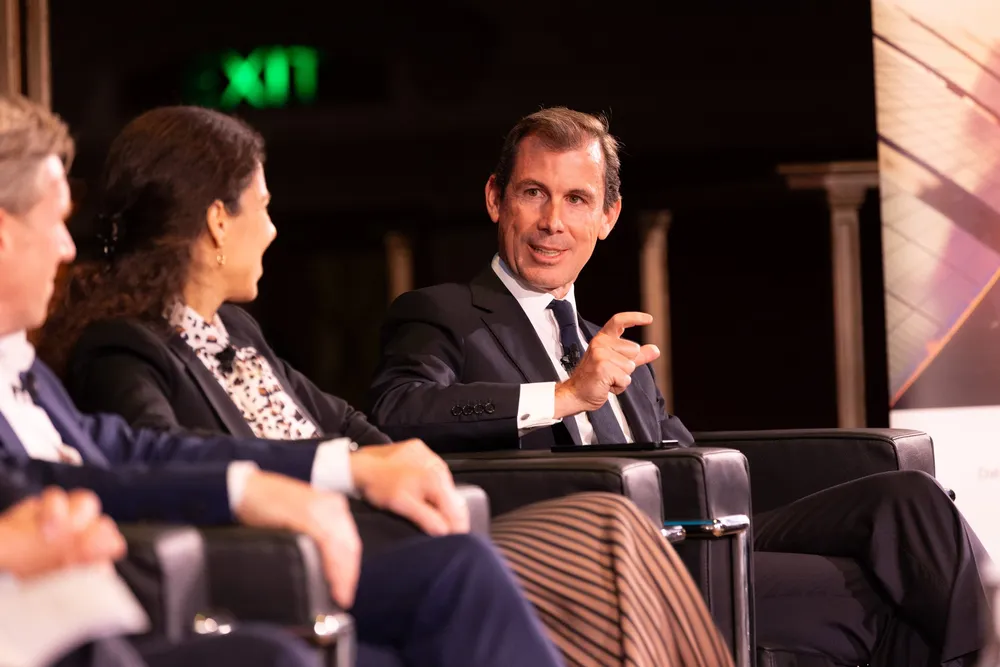'We got badly burned': EDPR chief on emerging market risks
EDPR carefully caps exposure in emerging markets while also employing asset rotation strategy, said chief at London energy summit

EDP Renewables has been “badly burned” in one country and could soon be in another, said the Iberian power giant’s CEO Miguel Stilwell d'Andrade, as he discussed the risks and rewards of developing wind and solar projects in emerging markets.
Key considerations for EDPR when deciding to invest in an emerging market are its scale, the strength of its institutional frameworks and the developer’s ability to build a “sufficient critical mass in that geography over time,” said Stilwell d'Andrade last week.
EDPR – the green unit of parent EDP Group – claims to be the fourth largest producer of green power worldwide, with a presence in 28 countries across four continents.
Speaking at the Aurora Spring Forum in London, Stilwell d'Andrade said that Brazil is one success story for EDPR investing in an emerging market. “Brazil is very volatile, but the whole economy is adjusted around that.”
A key feature of the Brazlian market is its persistently high inflation, he said, currently around 14%. But because everyone knows inflation is high the market is “built around” that, he said, with inflation linked contracts.
Rising inflation rates in Europe are a big deal, he said. But in Brazil, “it’s everyday business.”
Stilwell d'Andrade said that some have questioned what EDPR's returns from the market may be when it changes its Brazilian reals into dollars or euros. But it has worked out well for the developer, he said.
Asked whether the country was a natural investment destination for a Portuguese developer, he said that language can be a “false friend,” because culture and regulatory frameworks can still be very different.
Another Latin country that EDPR has invested in was Colombia. However there, “we got really badly burned,” said Stilwell d'Andrade. It’s an example of a country where you don’t have the necessary institutional framework, he said. “At least not in our experience.”
EDPR got caught up in a miserable permitting saga in Colombia. It won approval for 500MW of onshore wind projects, bought 90 Vestas V162-5.6MW turbines for them and entered into Power Purchase Agreements for the sites. However it could not win approval for a crucial transmission line.
Colombia is a “great case study,” said Stilwell d'Andrade, showing the importance of being “very careful” in emerging markets.
EDPR also has 500MW of renewables capacity in Vietnam, which Stilwell d'Andrade said was a country with a good framework and has been able to bring a large amount of wind and solar power online. However, he continued that Vietnam is turning into another “good case study," or indeed cautionary tale, of the importance of regulatory stability.
Wind and solar developers that entered subsidised Power Purchase Agreements (PPAs) with Vietnam’s state power utility EVN expressed “deep alarm” earlier this year over plans to retroactively cut subsidies. Developers have since reportedly complained EVN has unilaterally withheld payments, putting projects at risk of default.
“They’re basically cutting those PPAs,” said Stilwell d'Andrade. “Obviously that has an impact,” he said, adding there is a “regulatory discussion going on with the government and local utilities.”
It is for reasons like this, he said, that EDPR will “cap” its exposure in developing markets, often to 500MW as in Colombia and Vietnam. Ultimately, a developer’s exposure to a developing market can never be so high that they can’t just “walk away.”
EDPR also engages in asset rotation, he said, developing projects before selling them and redeploying that capital. Before EDPR has “realised those gains,” it won’t invest beyond a certain amount, he said.
On obtaining project financing, he said EDPR typically relies on local commercial banks, sometimes local development banks.
“We typically don’t work with” multinational investment banks, he said. “We’ve had some experiences with the European Investment Banks over the years.”
“To be honest,” he said, “they tend to be quite rigid, quite difficult and not necessarily much more competitive.”
(Copyright)